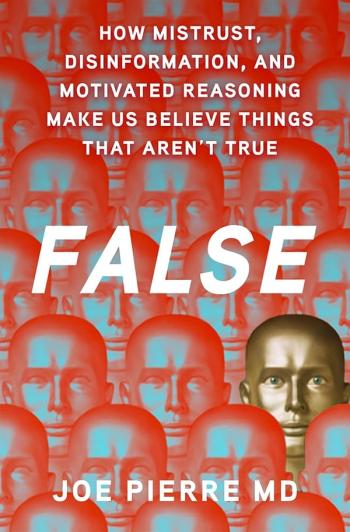
Fighting Frontal Fatigue
New book explores the effects of modern life and technology on mental illness.
BOOK PREVIEW
I was very excited when I received the “call for papers” for the 2005 meeting of the Association for the Advancement of Philosophy and Psychiatry. The theme that year was “Technology and Psychiatry.” This may seem like an odd pairing, but technology has a long history within philosophy. The basic concern is whether technology acts as a tool for humanity or its demands end up ordering our lives.
My plan for this paper was that technology would act as a proxy for something I had wanted to explore—namely the relationship between modern life and mental illness. Thus began the paper that would become my book, Frontal Fatigue. The Impact of Modern Life and Technology on Mental Illness.
Studies show an increased incidence of many mental disorders in industrialized countries over the 20th and now 21st centuries.1 Severe illnesses like schizophrenia did not change in incidence, but were appearing earlier in life with a more malignant course.2,3 It seemed that as modernity progressed, so did mental illness.
Once I dove into the research, it became apparent that technology need not be a proxy for modernity. Rather, technology was the organizing principle for modern life. Not only had we become more and more entrenched with the use of devices, but technological thinking had permeated our way of life.
By the time I wrote the book from 2016 to 2017, the use of digital devices had reached dramatic proportions. The gaps left in our lives by being cut off from one another and the larger social world we once enjoyed left us feeling isolated even when not alone—and this was before COVID-19. Sociologists and political scientists documented these losses in books like Bowling Alone: The Collapse and Revival of the American Community.4 To solve a life problem large or small, you no longer consulted someone older, more experienced, or with whom you identified—you asked Google.
Frontal fatigue is the result of these problems, but with intervening steps. Put briefly, the requirements of a technological society create a set of unrelenting cognitive demands. I describe these as complexity, abstraction, and reformatting. Complexity reflects the sheer intricacy of modern problems; abstraction, the need to see problems in the mind’s eye, as few things are self-evident; and reformatting, as rules and features we must master are constantly updated. These demands can only be managed by our mighty prefrontal cortex (PFC).
Despite the PFC’s incredible suite of functions, which are discussed at length, it has 2 fault lines. First, it does not work well under stress. Second, major imaging and lesion studies show the connection between the PFC and psychopathology.5,6 As Amy Arnsten, PhD, professor of neuroscience and psychology at Yale School of Medicine, as well as an international expert on the PFC, states, “If we call it mental illness, it’s because the prefrontal cortex is involved.”
By severely stressing the PFC beyond the limits of its design, we weaken any checks on vulnerability to psychopathology it may have. This is of course a theory, but it is directly supported by Arnsten’s work.
This process is frontal fatigue. It is a background condition, which to varying degrees affects everyone. We have created a society that detaches us from culture and one another, while substituting a world of technology. This creates cognitive demands on the PFC, which disinhibits vulnerabilities to mental illness.
Right now, it is up to each individual to protect themselves from this pervasive risk factor. The book provides a multi-pronged approach to do just this. This includes knowing how to lower the pressure on PFC in day-to-day life and how to recognize when it is stressed (eg, loss of train of thought, tip-of-tongue word-finding difficulty, difficulty or irritability when you need to shift your thinking, need to reread sentences, problems with working memory like walking into a room and forgetting why); having ways to disengage from PFC-heavy tasks, and finding practices to quiet and focus your mind. These practices can no longer be just for those interested—they must be incorporated as part of a normal, healthy life, just as diet and exercise have been.
The book closes with reflections on modern society, pointing out how connections, values, and life-guiding information, all formerly sustained by culture, have now been largely replaced by technological means. Even though I see no current solutions, I remain optimistic. Human nature is nothing if not adaptable. We have built new worlds before—it is time to do so once again.
References
1. Richter D, Wall A, Bruen A, Whittington R.
2. Fu TS, Lee CS, Gunnell D, et al.
3. Hidaka BH.
4. Putnam RD.
5. Arnsten AF.
6. Arnsten AF.
Newsletter
Receive trusted psychiatric news, expert analysis, and clinical insights — subscribe today to support your practice and your patients.







